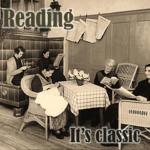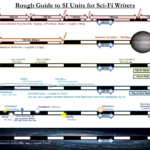
 I have an accent. You have an accent. We all have accents. Nobody “doesn’t have an accent,” although you often hear people claim they don’t because they speak a particularly privileged accent.
I have an accent. You have an accent. We all have accents. Nobody “doesn’t have an accent,” although you often hear people claim they don’t because they speak a particularly privileged accent.
For some reason, I hear this asserted most often by people from America’s Pacific Northwest. Not sure what they’re teaching kids in school up in Ecotopia, but Oregonians and Washingtonians should know that they also speak a dialect and have an accent, just like all us Muggles.
True, in most languages there is often an accent or family of accents accepted as a “standard” for communication, but these are still accents. It’s a silly prejudice to think of one dialect as “just talking” and all the rest as accents, as silly as the prejudice that led many ancient cultures to name themselves The (Real/Genuine) People while everyone else were “the tribes.”
Just as silly as the prejudice that leads many today to honor a socially privileged style of literature as “literary” while all other styles are mere “genres.”
This sort of social signifier carries a lot of emotional weight. People are very touchy and defensive about their speaking styles, their writing styles, their cultural styles. Here’s a personal anecdote that shows how this can really make life unnecessarily difficult for everyone:


 “Why do you bother with the follow-up material in some of your elevator pitches? An elevator pitch is supposed to be succinct and easy to take in quickly.”
“Why do you bother with the follow-up material in some of your elevator pitches? An elevator pitch is supposed to be succinct and easy to take in quickly.”
 I belong to a growing faction of writers (including my friends
I belong to a growing faction of writers (including my friends  Recently, I made a statement about editing, and someone asked if it contradicted a complaint I had earlier lodged against Jonathan Franzen. Specifically,
Recently, I made a statement about editing, and someone asked if it contradicted a complaint I had earlier lodged against Jonathan Franzen. Specifically, 
 So, I was recently shamed in an internet comment feed (no surprise there) for not posting “spoiler alert” before suggesting that the character Billy Bones probably didn’t really die in the first season of the Starz series Black Sails, because the show is conceived as a prequel to Robert Louis Stevenson’s
So, I was recently shamed in an internet comment feed (no surprise there) for not posting “spoiler alert” before suggesting that the character Billy Bones probably didn’t really die in the first season of the Starz series Black Sails, because the show is conceived as a prequel to Robert Louis Stevenson’s 
 I’ve said it before:
I’ve said it before: 
 If you were surprised at my take on the nature of literature in “
If you were surprised at my take on the nature of literature in “ The other day, while discussing
The other day, while discussing 

 Humans tend to get befuddled by inhuman scales. This is nowhere so obvious as in bad science fiction and bad science reporting. And, just bad science.
Humans tend to get befuddled by inhuman scales. This is nowhere so obvious as in bad science fiction and bad science reporting. And, just bad science.